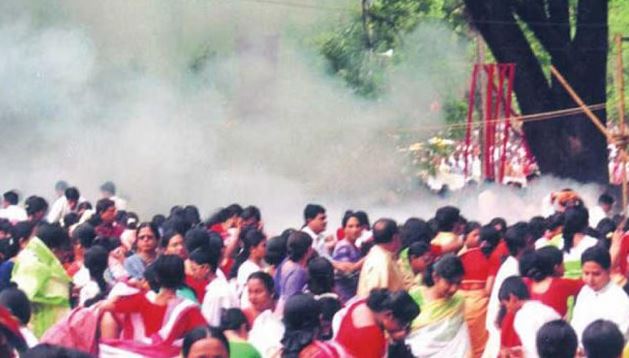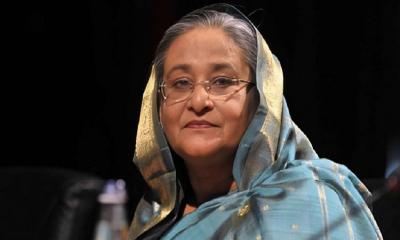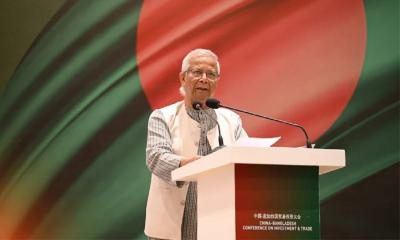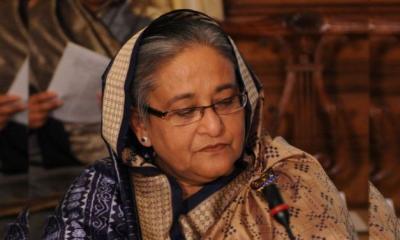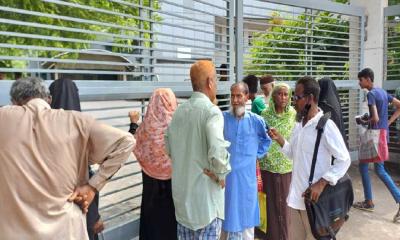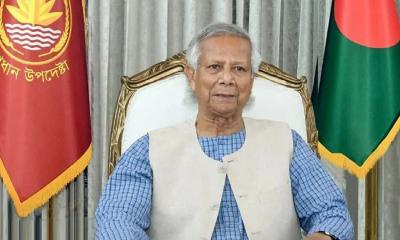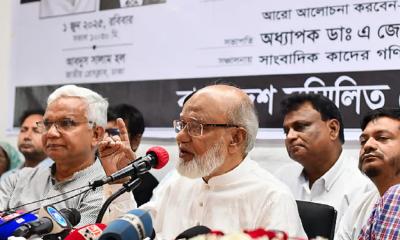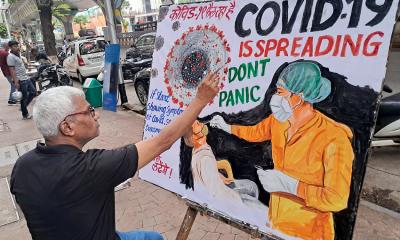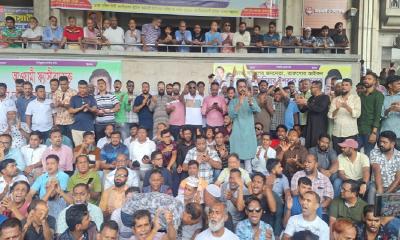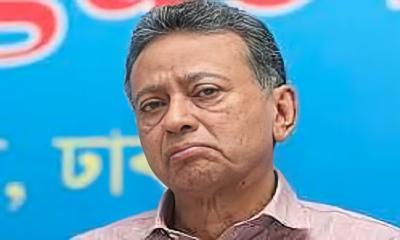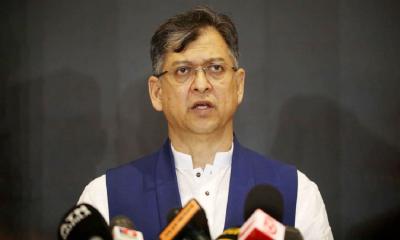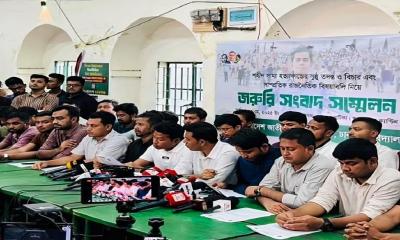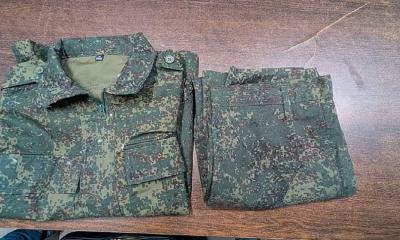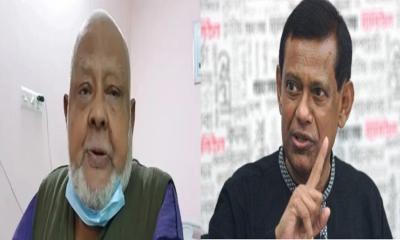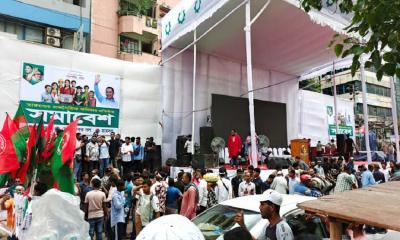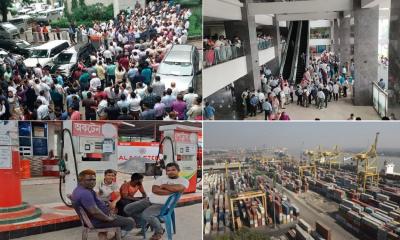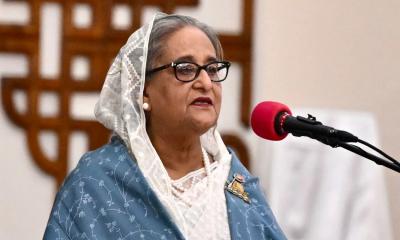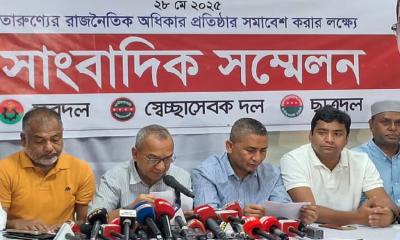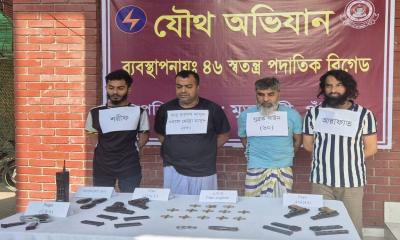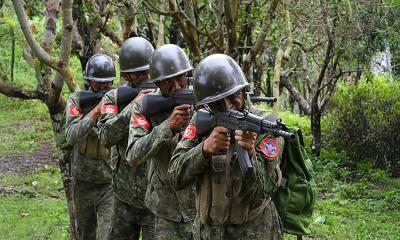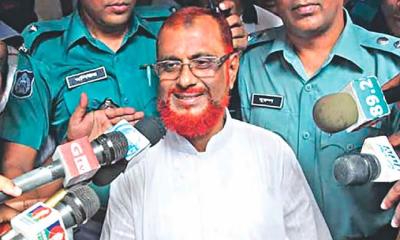The High Court (HC) has scheduled next Tuesday (13 May) to announce the final verdict on the death reference (approval of death penalty) in the murder case filed over the bomb attack at the Pahela Baishakh celebrations at Ramna Batamul 24 years ago.
The High Court bench of Justice Mostafa Zaman Islam and Justice Nasreen Akhter began reading out the verdict at 11:25 am today, Thursday. Around 1:00 pm, the court fixed the next date for the remaining part of the verdict, reports Prothom Alo.
Speaking to Prothom Alo, deputy attorney general Sultana Akhter said the declaration of the verdict started today. The court reviewed the case statement, the charges and witness testimonies today. The court fixed next Tuesday to deliver the remaining part of the verdict.
At the beginning of the session, the court said the proceedings would focus on reviewing the incident and witness accounts today, and the rest of the verdict would be delivered later.
At that point, the lawyer of the defendant asked the court, “So won`t the final decision (order part of the verdict) be given today?”
The court responded, “No, the order part is not being delivered today,” and then proceeded with the verdict reading.
Earlier, following hearings on the death reference and appeals of the accused, the High Court kept the case in a “curia advisari vult” (CAV) or pending state on 18 February.
Later, on 30 April, the case appeared on the court’s cause list for verdict. On that day, the court scheduled 8 May (today) for delivering the verdict on the case. The case was listed at serial number 163 on the cause list of the court.
On April 14, 2001, a bomb attack occurred during Pahela Baishakh celebrations at Ramna Batamul, killing nine people on the spot and another in the hospital later. The case filed over the incident became widely known as the Ramna Batamul bombing case.
Following the trial court`s verdict, the case was referred to the High Court in 2014 for approval of the death sentences (death reference). Meanwhile, the convicted prisoners filed jail appeals and regular appeals. The death reference and appeals were taken up for hearing by the same High Court bench on 8 December last year. The hearing started with a paper book presentation.
Representing the accused were senior lawyers SM Shahjahan and Sarwar Ahmed. Lawyer Mohammad Shishir Monir represented two of the accused, assisted by Zayed Bin Amjad. Deputy attorney general Sultana Akter and assistant attorney general Md Asif Imran stood for the state in the hearing.
On 23 June, 2014, judge Ruhul Amin of the Dhaka Second Additional Metropolitan Sessions Judge`s Court sentenced eight people, including Mufti Hannan, to death, and six others to life imprisonment in the case.
Apart from Mufti Hannan, whose death sentence was already carried out in another case (Sylhet grenade attack), the others sentenced to death are Akbar Hossain, Arif Hasan, Mohammad Tajuddin (brother of former deputy minister Abdus Salam Pintu), Hafez Jahangir Alam Badr, Abu Bakar alias Hafez Selim Howlader, Abdul Hai, and Shafiqul Rahman.
Those sentenced to life imprisonment are Shahadatullah Jewel, Sabbir, Sheikh Farid, Abdur Rauf, Yahya, and Abu Taher.
In criminal cases, if a trial court sentences someone to death, the High Court must approve it for execution—this is known as a "death reference." Simultaneously, the convicted persons have the right to file jail and regular appeals as well as other petitions. The death reference and these appeals are usually heard together.
After the trial court verdict, the case documents were sent to the High Court in 2014 for the death reference. A paper book (case summary) was prepared as part of the hearing preparations. Meanwhile, the accused in custody filed separate appeals. The death reference and appeals were first scheduled for hearing by a dual High Court bench in 2016.
Although hearings began, the case was later dropped from the cause list. Over the years, the case appeared on the cause list of three different High Court benches, but it was not settled. Finally, on 8 December last year, the current bench took up the case again.


